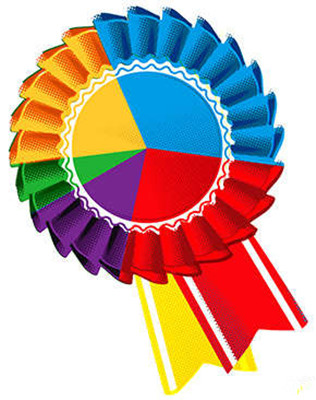国外的巴尔干战士
Fight the good fight
为正义而战
With the Western Balkans at peace, some go abroad to look for war
西巴尔干地区一片和平,有些人因此赴国外参战
FROM the Sea of Azov to Aleppo, fighters from the western Balkans are at war. So worried are their governments that laws have been passed to make fighting abroad illegal, and their security services co-operate with foreign ones to monitor them. The numbers are small, but the Balkans looms relatively large on foreign battlefields.
来自西巴尔干地区的战士在亚速海至阿勒颇〔叙利亚城市〕一带作战。西巴尔干各国政府为此忧心如焚,遂立法,规定国外参战属违法行为,同时各国安全部门与国外相应部门合作,以监控本国战士。巴尔干地区的参战人数虽少,但他们在国外战场上的踪迹相当广泛。

Orthodox Christian Serbs are joining pro-Russian rebels in Ukraine while Catholic Croats fight on Ukraine's side. Muslim Albanians, Bosniaks and Muslims from Sandzak, the area straddling Serbia and Montenegro, have gone to fight inIraq and Syria. All spread their messages online and send greetings to one another. Last month two gloating Croats speaking on YouTube said “Hope to see you soon!” to their Serb “friends”. For Serbs and Croats, this war is a replay of their own conflict in the 1990s as much as an adventure or crusade.
信奉东正教的塞尔维亚人在乌克兰加入支持俄罗斯的反政府军,而信奉天主教的克罗地亚人则代表乌克兰战斗。信奉穆斯林的阿尔巴尼亚人、波斯尼亚人以及桑扎克地区(跨越塞尔维亚与黑山两国的地带)的人远赴伊拉克与叙利亚作战。所有战士在网上传递讯息,并相互问候。3月份,两名克罗地亚人甚至洋洋自得地在YouTube上发布视频,向他们的塞尔维亚“朋友”说“希望快点见到你们!”。对于塞尔维亚人和克罗地亚人而言,这场战争重演了20世纪90年代他们的内部冲突,可以说是一次冒险经历,也可以说是一场宗教战争。
Recently Serbs in eastern Ukraine have been more taken up with their internal conflicts. The highest-profile Serb in eastern Ukraine is Radomir Pocuca, once a spokesman for Serbia's interior ministry. Last month he was captured by other Serb fighters. He was humiliated by pictures on Facebook of him bound and blindfolded, wearing a shirt emblazoned with a Serbian flag and the motto “Serbian Honour”.
然而,乌克兰东部的塞尔维亚人可能更关注的是他们的内部冲突。这些人当中名声最大的当属Radomir Pocuca,他曾担任塞尔维亚内务部的发言人。3月份,一些同胞战士将其逮捕,他们在Facebook上发布了Radomir Pocuca的照片,照片中他被捆绑着,蒙住眼睛,身穿印有塞尔维亚国旗图案和“塞尔维亚人的荣耀”字样的T恤,以此来羞辱他。
Many Serbs are affiliated to small ultranationalist groups. They loathe their government, hate the European Union and are against joining NATO. They believe they are fighting a Christian fight. In this they are like the Croats who have joined Ukraine's Azov Battalion, a unit notorious for its neo-Nazi symbol that has attracted volunteers from the far right across Europe.
很多塞尔维亚人属于小型极端民族主义组织成员。他们憎恶政府,憎恨欧盟,反对加入北约组织。他们认为自己是为正义而战。这一点与克罗地亚人相似,后者加入了乌克兰的亚速军营。该部队因采用新的纳粹主义标志而远近闻名,吸引了来自欧洲各地的极右主义人士。
Although they get much attention, says Kacper Rekawek, a Polish researcher, there are relatively few foreigners in Ukraine, other than Russians. He reckons about 300 fighters have passed through on each side. But with up to 100 Serbs having fought for the rebels, they have been among the biggest group of foreigners. Croats, with 25-odd fighters, have been the third-largest foreign contingent on Ukraine's side.
波兰研究学家Kacper Rekawek表示,尽管他们吸引了不少目光,但乌克兰境内的外国人除俄罗斯人外,相当之少。他认为,双方各有约300名战士进入境内。但在反政府军中作战的塞尔维亚人高达100人,成为最大的外国作战团。而作战的克罗地亚人约有25人,成为支持乌克兰政府的第三大外国战队。
In Syria and Iraqthe numbers are a lot bigger. Shpend Kursani, author of a report on Kosovars fighting there, says he has identified 232. There have been 330 Bosnians, 90 Albanians, 70 Serbians and 12 Macedonians. The leader of the Albanian contingent in Islamic State is Lavdrim Muhaxheri who, one returned member told Mr Kursani, is obsessed with his ratings on social media. Mr Muhaxheri has made one video in which he beheads an Iraqi captive. Mr Kursani finds that, when jihadists are counted as a percentage of countries' populations, Kosovo is top of a list of 22 countries,Bosnia second and Albania fourth. As a percentage of Muslims in each country, though, Kosovo comes 14th, between Germany and Spain. Bosniais 11th and Albania 20th. The top nine countries are west European.
而在叙利亚和伊拉克参战的人数相比甚多。科索沃作战报告的作者Shpend Kursani表示已确定232人的身份,其中波斯尼亚人330名,阿尔巴尼亚人90名,塞尔维亚人70名,马其顿人12名。一名回国战士向他透露,位于伊斯兰国的阿尔巴尼亚人战队领导人是Lavdrim Muhaxheri,他痴迷于增加自己在社会媒体中的人气。这位领导人亲手砍下一名伊拉克俘虏的人头,并录下视频。Kursani学者发现,如果以整个国家的人口作为基数,科索沃的圣战主义者在22个国家当中所占比例最大,波斯尼亚第二,阿尔巴尼亚第四。然而,如果以每个国家的穆斯林人口作为基数,那么科索沃的圣战主义者所占比例居于十四位,位于德国和西班牙之间。波斯尼亚位居十一位,阿尔巴尼亚二十位。位居前九名的国家均来自于西欧。
According to Mr Kursani, most Kosovars in Syria are from rural areas and poorly educated. Nearly two-fifths have criminal records. Some 34 are known to have been killed. Contrary to popular belief, which blames Saudi influence, Mr Kursani finds that the fighters have been motivated by the Takfiri ideology, which has been spreading recently into Kosovo through Albanian imams living in Macedonia, who first embraced it in Egypt.
根据Kursani的研究,在叙利亚的大部分科索沃人来自偏远地区,受教育程度低。近五分之二的人有过犯罪记录。而已知的战死人数约为34人。他发现,由于受沙特人的不良影响,这些战士没有相信普遍观点,相反,在塔克菲理思想的激化下赴外作战。该思想最近通过居住在马其顿的阿尔巴尼亚籍伊玛目(清真寺内率领穆斯林做礼拜的人)传入科索沃,传入者在埃及首次皈依于这一思想。
Most fighters face arrest when they return (though not in Croatia, where fighting in foreign wars is not outlawed). This may be why fewer are going now. Balkan governments want neither extreme nationalists nor violent Islamists causing trouble. What is striking is the degree to which, apart from their religions, most Balkan fighters are so broadly united: against liberalism and the West.
大部分战士回国后会被逮捕(然而,克罗地亚除外,参加国外战争在该国并不违法)。这也许是现在几乎无人回国的原因。巴尔干各国政府既不欢迎极端民族主义者,也不欢迎暴力、惹事端的伊斯兰教人士。然而,这些巴尔干战士存宗教信仰之异,如此广泛地团结起来反对自由主义和西方世界,着实让人震惊。翻译:石海霞 校对:曾擎禹













